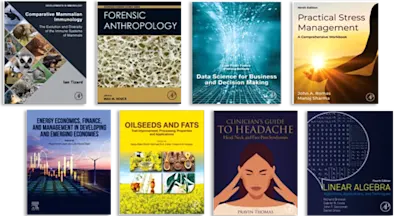
Waste Biorefinery
Potential and Perspectives
- 1st Edition - April 13, 2018
- Imprint: Elsevier
- Editors: Thallada Bhaskar, Ashok Pandey, S.Venkata Mohan, Duu-Jong Lee, Samir Kumar Khanal
- Language: English
- Paperback ISBN:9 7 8 - 0 - 4 4 4 - 6 3 9 9 2 - 9
- eBook ISBN:9 7 8 - 0 - 4 4 4 - 6 3 9 9 3 - 6
Waste Biorefinery: Potential and Perspectives offers data-based information on the most cutting-edge processes for the utilisation of biogenic waste to produce biofuels, energy pr… Read more

Purchase options

Institutional subscription on ScienceDirect
Request a sales quoteWaste Biorefinery: Potential and Perspectives offers data-based information on the most cutting-edge processes for the utilisation of biogenic waste to produce biofuels, energy products, and biochemicals – a critical aspect of biorefinery. The book explores recent developments in biochemical and thermo-chemical methods of conversion and the potential generated by different kinds of biomass in more decentralized biorefineries. Additionally, the book discusses the move from 200 years of raw fossil materials to renewable resources and how this shift is accompanied by fundamental changes in industrial manufacturing technologies (from chemistry to biochemistry) and in logistics and manufacturing concepts (from petrochemical refineries to biorefineries).
Waste Biorefinery: Potential and Perspectives
designs concepts that enable modern biorefineries to utilize all types of biogenic wastes, and to integrate processes that convert byproduct streams to high-value products, achieving higher cost benefits. This book is an essential resource for researchers and students studying biomass, biorefineries, and biofuels/products/processes, as well as chemists, biochemical/chemical engineers, microbiologists, and biotechnologists working in industries and government agencies.- Details the most advanced and innovative methods for biomass conversion
- Covers biochemical and thermo-chemical processes as well as product development
- Discusses the integration of technologies to produce bio-fuels, energy products, and biochemicals
- Illustrates specific applications in numerous case studies for reference and teaching purposes
Chemists, Chemical Engineers, Biochemical Engineers, Microbiologists, Biotechnologists working in academic institutes, research institutes, industries and governmental agencies. MS/M Tech students; PhD scholars; researchers studying biomass conversion, biofuels, biorefineries, bioprocesses and bioproducts, bio-chemicals etc.
- Edition: 1
- Published: April 13, 2018
- No. of pages (Paperback): 890
- No. of pages (eBook): 890
- Imprint: Elsevier
- Language: English
- Paperback ISBN: 9780444639929
- eBook ISBN: 9780444639936
TB
Thallada Bhaskar
AP
Ashok Pandey
Prof. Ashok Pandey is currently Executive Director, Centre for Energy and Environmental Sustainability-India, Lucknow. His major research and technological development interests are industrial and environmental biotechnology and energy biosciences, focusing on biomass to biofuels and chemicals, waste to wealth and energy, etc.
SM
S.Venkata Mohan
DL
Duu-Jong Lee
SK